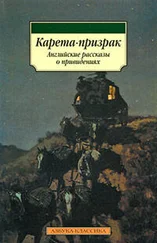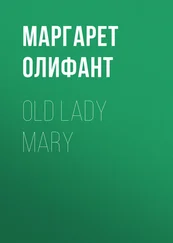Маргарет Олифант - Brownlows
Здесь есть возможность читать онлайн «Маргарет Олифант - Brownlows» — ознакомительный отрывок электронной книги совершенно бесплатно, а после прочтения отрывка купить полную версию. В некоторых случаях можно слушать аудио, скачать через торрент в формате fb2 и присутствует краткое содержание. Жанр: foreign_prose, literature_19, foreign_antique, на английском языке. Описание произведения, (предисловие) а так же отзывы посетителей доступны на портале библиотеки ЛибКат.
- Название:Brownlows
- Автор:
- Жанр:
- Год:неизвестен
- ISBN:нет данных
- Рейтинг книги:5 / 5. Голосов: 1
-
Избранное:Добавить в избранное
- Отзывы:
-
Ваша оценка:
- 100
- 1
- 2
- 3
- 4
- 5
Brownlows: краткое содержание, описание и аннотация
Предлагаем к чтению аннотацию, описание, краткое содержание или предисловие (зависит от того, что написал сам автор книги «Brownlows»). Если вы не нашли необходимую информацию о книге — напишите в комментариях, мы постараемся отыскать её.
Brownlows — читать онлайн ознакомительный отрывок
Ниже представлен текст книги, разбитый по страницам. Система сохранения места последней прочитанной страницы, позволяет с удобством читать онлайн бесплатно книгу «Brownlows», без необходимости каждый раз заново искать на чём Вы остановились. Поставьте закладку, и сможете в любой момент перейти на страницу, на которой закончили чтение.
Интервал:
Закладка:
This speculation had returned to his mind as he came in sight of the park gates. It was quite dark by this time, but the moon was up overhead, and the road was very visible on either side of that little black block of Swayne’s cottages which threw a shadow across almost to the frosted silver gates. Something, however, was going on in this bit of shadow. A large black movable object stood in the midst of it; and from Mrs. Swayne’s door a lively ray of red light fell across the snow. Then by degrees Jack identified the horses, with their steaming breath, and the wagon wheel upon which the light fell. He said “by Jove” loud out as he stood at the gate and found out what it was. It was the very carrier’s cart of which he had been thinking, and some mysterious transaction was going on in the darkness which he could only guess at vaguely. Something or somebody was being made to descend from the wagon, which some sudden swaying of the horses made difficult. Jack took his cigar from his lips to hear and see the better, and stood and gazed with the vulgarest curiosity. Even the carrier’s cart was something to take note of on the road at Brownlows. But when that sudden cry followed, he tossed his cigar away and his skates with it, and crossed the road in two long steps, to the peril of his equilibrium. Somehow he had divined what was happening. He made a stride into the thick of it, and it was he who lifted up the little figure in the red cloak which had slipped and fallen on the snow. It was natural, for he was the only man about. The carrier was at his horses’ heads to keep them steady; Mrs. Swayne stood on the door steps, afraid to move lest she too should slip; and as for the girl’s mother, she was benumbed and stupefied, and could only raise her child up half-way from the ground, and beg somebody to help. Jack got her up in his arms, pushed Mrs. Swayne out of his way, and carried her in. “Is it here she is to go?” he cried over his shoulder as he took her into the parlor, where the card hung in the window, and the fire was burning. There was nothing in it but firelight, which cast a hue of life upon the poor little traveler’s face. And then she had not fainted, but blushed and gasped with pain and confusion. “Oh, thank you, that will do,” she cried—“that will do.” And then the others fell upon her, who had come in a procession behind, when he set her down. He was so startled himself that he stood still, which was a thing he scarcely would have done had he known what he was about, and looked over their heads and gaped at her. He had put her down in a kind of easy-chair, and there she lay, her face changing from red to pale. Pale enough it was now, while Jack, made by his astonishment into a mere wondering, curious boy, stood with his mouth open and watched. He was not consciously thinking how pretty she was; he was wondering if she had hurt herself, which was a much more sensible thought; but still, of course, he perceived it, though he was not thinking of it. Curls are common enough, you know, but it is not often you see those soft rings, which are so much longer than they look; and the eyes so limpid and liquid all through, yet strained, and pathetic, and weary—a great deal too limpid, as any body who knew any thing about it might have known, at a glance. She made a little movement, and gave a cry, and grew red once more, this time with pain, and then as white as the snow. “Oh, my foot, my foot,” she cried, in a piteous voice. The sound of words brought Jack to himself. “I’ll wait outside, Mrs. Swayne,” he said, “and if the doctor’s wanted I’ll fetch him; let me know.” And then he went out and had a talk with the carrier, and waited. The carrier knew very little about his passenger. He reckoned the young un was delicate—it was along of this here brute swerving when he hadn’t ought to—but it couldn’t be no more than a sprain. Such was Hobson’s opinion. Jack waited, however, a little bewildered in his intellects, till Mrs. Swayne came out to say his services were not needed, and that it was a sprain, and could be mended by ordinary female remedies. Then young Mr. Brownlow got Hobson’s lantern, and searched for his skates and flung them over his shoulders. How queer they should have come here—how odd to think of that little face peeping out at Mrs. Swayne’s window—how droll that he should have been on the spot just at that moment; and yet it was neither queer nor droll to Jack, but confused his head somehow, and gave him a strange sort of half-commotion in the region of his heart. It is all very well to be sensible, but yet there is certainly something in it when an adventure like this happens, not to Keppel, or that sort of fellow, but actually to yourself.
CHAPTER VII.
THE FATHER’S DAY AT THE OFFICE
While Sara and Jack were thus enjoying themselves, Mr. Brownlow went quietly in to his business—very quietly, in the dogcart, with his man driving, who was very steady, and looked as comfortable as his master. Mr. Brownlow was rather pleased not to have his son’s company that morning; he had something to do which he could scarcely have done had Jack been there—business which was quite justifiable, and indeed right, but which it would have been a disagreeable matter to have explained to Jack. His mind was much more intent upon his own affairs than were those of either of his children on theirs. They had so much time in life to do all they meant to do, that they could afford to set out leisurely, and go forth upon the world with a sweet vacancy in their minds, ready for any thing that might turn up; but with Mr. Brownlow it was not so; his objects had grown to be very clear before him. He was not so old as to feel the pains or weariness or languor of age. He was almost as able to enjoy, and perhaps better able to do, in the way of his profession at least, than was young Jack. The difference was, that Mr. Brownlow lived only in the present; the future had gradually been cut off, as it were, before him. There was one certainty in his path somewhere a little in advance, but nothing else that could be counted upon, so that whatever he had to do, and anything he might have to enjoy, presented themselves with double clearness in the limited perspective. It was the only time in his life that he had felt the full meaning of the word “Now.” The present was his possession, his day in which he lived and worked, with plenty of space behind to go back upon, but nothing reliable before. This gave not only a vividness and distinct character, but also a promptitude, to his actions, scarcely possible to a younger man. To-day was his, but not to-morrow; whereas to Jack and his contemporaries to-morrow was always the real day, never the moment in which they lived.
When Mr. Brownlow reached his office, the first thing he did was to send for a man who was a character in Masterton. He was called by various names, and it was not very certain which belonged to him, or indeed if any belonged to him. He was called Inspector Pollaky by many people who were in the habit of reading the papers; but of course he was not that distinguished man. He was called detective and thief-taker, and many other injurious epithets, and he was a man whom John Brownlow had had occasion to consult before now on matters of business. He was sent for that morning, and he had a long conversation with Mr. Brownlow in his private room. He was that sort of man that understands what people mean even when they do not speak very plainly, and naturally he took up at once the lawyer’s object and pledged himself to pursue it. “You shall have some information on the subject probably this afternoon, sir,” he said as he went away. After this visit Mr. Brownlow went about his own business with great steadiness and precision, and cast his eyes over his son’s work, and was very particular with the clerks—more than ordinarily particular. It was his way, for he was an admirable business man at all times; but still he was unusually energetic that day. And they were all a little excited about Pollaky, as they called him, what commission he might have received, and which case he might be wanted about. At the time when he usually had his glass of sherry, Mr. Brownlow went out; he did not want his midday biscuit. He was a little out of sorts, and he thought a walk would do him good; but instead of going down to Barnes’s Pool or across the river to the meadows, which had been lately flooded, and now were one sheet of ice, places which all the clerks supposed to be the most attractive spots for twenty miles round, he took the way of the town and went up into Masterton. He was going to pay a visit, and it was a most unusual one. He was going to see his wife’s mother, old Mrs. Fennell, for whom he had no love. It was a thing he did not do for years together, but having been somehow in his own mind thoroughly worked up to it, he took the occasion of Jack’s absence and went that day.
Читать дальшеИнтервал:
Закладка:
Похожие книги на «Brownlows»
Представляем Вашему вниманию похожие книги на «Brownlows» списком для выбора. Мы отобрали схожую по названию и смыслу литературу в надежде предоставить читателям больше вариантов отыскать новые, интересные, ещё непрочитанные произведения.
Обсуждение, отзывы о книге «Brownlows» и просто собственные мнения читателей. Оставьте ваши комментарии, напишите, что Вы думаете о произведении, его смысле или главных героях. Укажите что конкретно понравилось, а что нет, и почему Вы так считаете.












